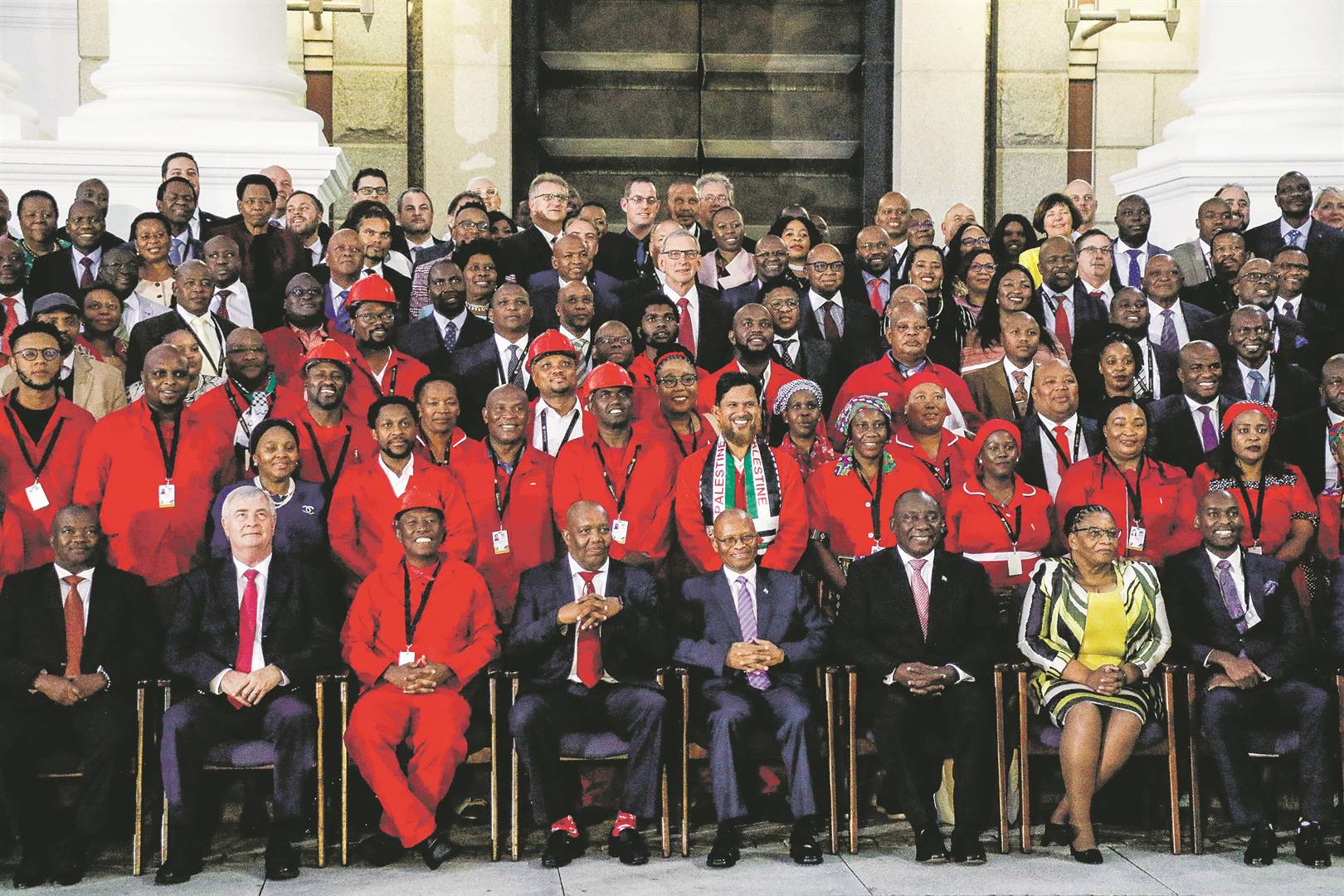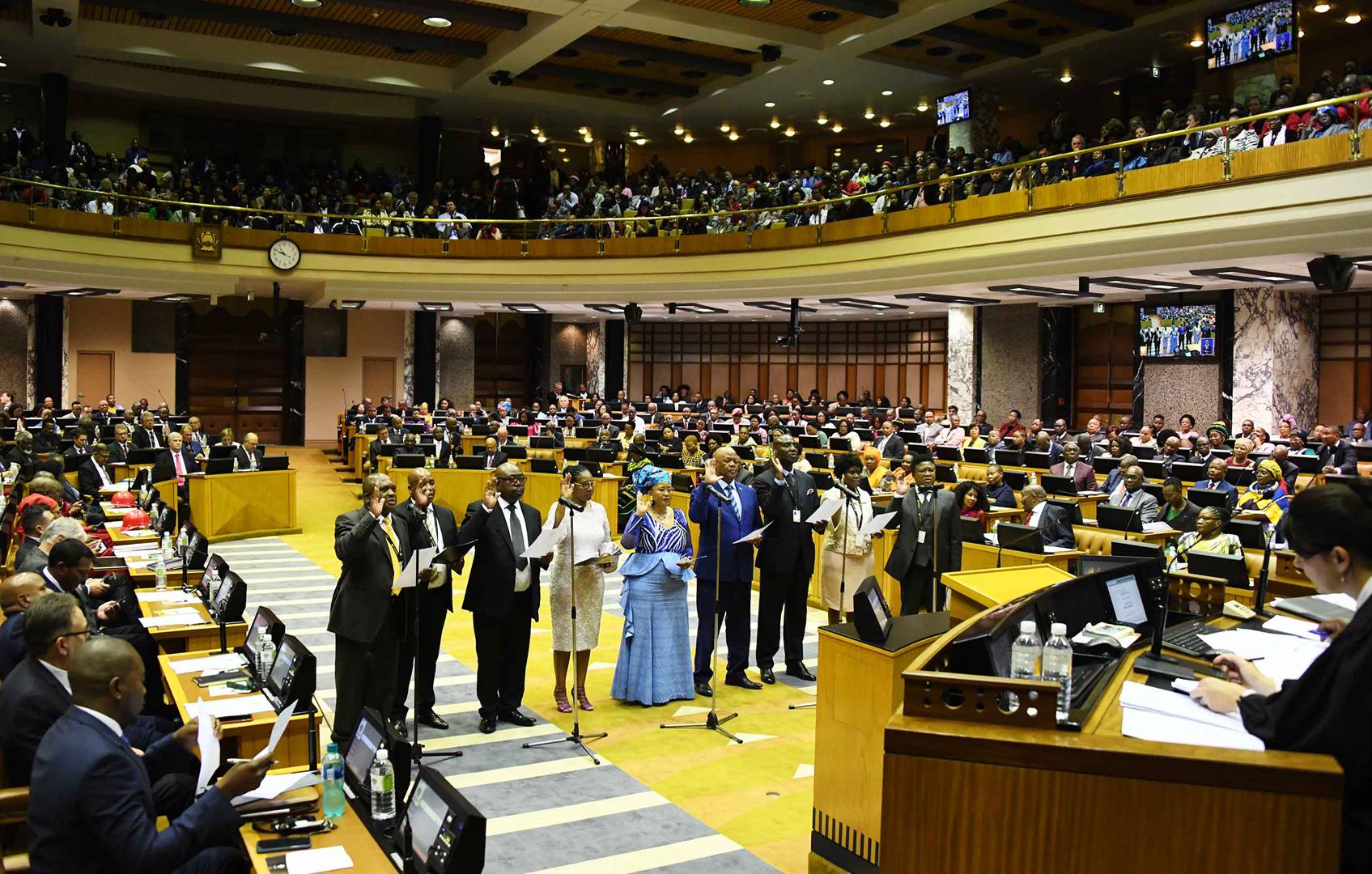
Having a lean government, with fewer high-end structures, would do far more to offset our heavy wage bill than targeting civil servants and considering privatisation
The reality of a government budget deficit in the face of slow and/or non-existent economic growth, and what seems a heavy state salary bill, means certain very hard choices must be made.
The budget pressures on government, which has to continually bail out ailing state-owned enterprises (SOEs), mean that one way or the other, somebody must pay the price.
Over many years, government has come up with what are called belt-tightening measures which, in real terms, are cosmetic.
Cutting costs on travel, catering and other frivolous things was never going to make much difference in the bigger scheme of things.
In fact, those types of cuts ought to have happened in the normal course of events.
The fact that they were seen as extraordinary measures suggests that the bar was always set too low.
There have always been serious issues the government ought to have confronted if it wanted to save money.
Corruption is one of those ranking highest in the hierarchy of these problems.
Poor planning and bad policy and management decisions form part of the realities government failed to confront when the opportunity was there.
The same must be said of inefficiency and poor management.
The greater part of the service delivery deficit is caused by these factors.
The idea that the state wage bill is one of the real causes of our budget pressures deals with the effect rather than the cause of the problem.
It is inevitable that there must be a reduction of the wage bill.
The problem is that the target is the foot soldiers, without whom the state cannot really function optimally.
The first part of public administration that is bloated has to do with the many politicians we have who, in real terms, we do not need at all.
We have 11 legislatures, including the National Council of Provinces. The cost of this alone is just prohibitive.
Targeting teachers, nurses, police officers, soldiers and low-level civil servants in the belief that this will reduce our financial troubles is delusional, to say the least.
On the contrary: we need more of these categories of civil servants than the many legislators we have.
Our current system of government forces us to have at least 90 MECs of the nine provincial governments, plus nine premiers.
Added to this is the staff they must have. The total cost for this alone is mind-boggling.
Then we have councillors and mayors with their executive committees, again with staff, at a prohibitive cost.
As if this were not enough, we also have SOEs and other state institutions, each with their own board of directors or governing structure and administration.
What we have not been told, aside from the fact that the Constitution provides for it, is why we need so many politicians and governance structures at such great cost.
We already have a bloated national Cabinet which far exceeds the needs.
Having regard for the fact that MECs are the equivalent of deputy ministers and there are many shared functions between the three spheres of government, why is it necessary to have this type of duplication at such great cost, especially at a time when we cannot afford it and the budget pressures are so serious?
We have also not been told why we need so many structures of government, including so many state departments, municipalities and SOEs.
Why can we not have a lean government and fewer structures?
Almost every state department has at least three or four entities under it, each with its own fully fledged governance structure and administration.
Even in those instances, the boards of those entities could easily be merged.
We can do the same with the many state departments and municipalities, and drastically reduce the cost.
I suspect, though, that not one political party will agree to this proposition.
Somebody must please tell us what the actual cost drivers of our system are, instead of this approach which seeks to shift responsibility.
Countries that are doing well pay their civil servants far better than we do.
Police officers, teachers, nurses and other civil servants are paid better and deliver better.
Do we not have too many managers and fewer people at the technical level to do the actual work?
It is one thing to reduce the wage bill and another to deliver quality services.
With the top-heavy structure with municipal councils, legislatures, a 400-member Parliament, boards of entities and a plethora of SOEs and their governance structures, what benefit in terms of service delivery do we derive?
How do we, as a nation, hope to improve our educational outcomes, deal decisively with rampant crime, address our ability to provide quality healthcare and reduce poverty and inequality when our focus is rather on maintaining the clearly dysfunctional constitutional system we have trapped ourselves in?
Why are we afraid to revise our Constitution with the benefit of hindsight and do away with the things we really no longer need, and focus resources where they are needed the most?
Are we preparing, as the next step in this belt-tightening project, to reduce social grants, which some in society have become wholly dependent on as a result of this grinding poverty?
Are we preparing to reverse free basic and higher education as we feel more budget pressure and further deprive the country of a skilled and educated youth simply because we are so afraid to tamper with the benefits that go with political office?
The methods and approaches to addressing our real challenges are wanting. Many sincere and diligent South Africans lost their jobs for refusing to allow corruption to thrive.
They were replaced with a kleptocracy and kakistocracy that have contributed significantly to destroying this country.
We ought by now to have learnt a lesson from this experience.
But we cannot because across political parties in our country, stomachs matter the most.
A seat in the municipal council, a legislature and Parliament has become a ticket to a better life.
Not a single political party has become immune to the trappings of power and the benefits that go with it.
Instead of confronting the reality of our poor planning and governance, we have taken refuge in blaming those who are hardly involved in the bad decisions that have been made at the top by those who drain our resources as they spend sleepful days in our municipal councils and legislatures.
We have resorted to the dreaded idea of the privatisation of important and critical public functions because we do not want to take the really hard decisions to correct our skewed governance system.
READ: Mmusi Maimane can’t change his spots
We know for a fact that we took bad policy decisions. We had an opportunity to take proper and sustainable policy decisions.
We continue to get stuck in the bad policy decisions we took and hope that they will become better, even as we see that they do not work.
Who told our leaders that privatisation of public services is the solution to our problem? After all, who says the private sector is innocent and clear of incompetence and corruption?
The level of corruption in our society represents the nature and extent to which the private sector is involved.
The privatisation approach must be interpreted as another way of reversing our transformation agenda and restoring power into the hands of the minority we defeated through many years of struggle.
The same monopoly capital owners who are keeping their money away to use when it suits them must benefit from their own contribution to frustrating change and transformation.
Most of the failed strategies and policies of government can be traced to, and located in, the work of the private sector.
How this would change if we privatised makes one wonder.
The fact that our budget collapsed under the pressure partly caused by corruption and maladministration is the evidence we have to prove that we do not need this bloated political structure and this dreaded privatisation of public resources.
If this bloated structure was ever functional, we would be in a better space than we are now.
The fact that we have nine legislatures and about 263 municipalities but the services remain poor, with poverty and inequality increasing by the day, simply means that we do not need these many political leaders.
In fact, they may be the root cause of our troubles. Similarly, if the private sector was ever that good to us, why are we in this mess?
Some of those who are screaming from the side of the private sector failed us when they were in government.
Some of the mess we have can be directly linked to their own policy and governance failures.
The sadness of our situation is that we pretend our troubles are new.
We are clearly delusional if we think the current problems will go away, unless we do away with most of what we no longer need.
Selling state assets and offering critical public servants early retirement is but a pawn-shop approach to a serious problem.
We may as well sell the government in its entirety now and not do it in instalments.
Modidima Mannya is an advocate, writer and executive director for legal services at the University of SA
How do you think government can reduce
its heavy wage bill?
SMS us on 35697 using thekeyword DEFICIT and tell us what you think. Please include your name and province. SMSes cost R1.50. By participating, you agree to receive occasional marketing material




 Publications
Publications
 Partners
Partners










